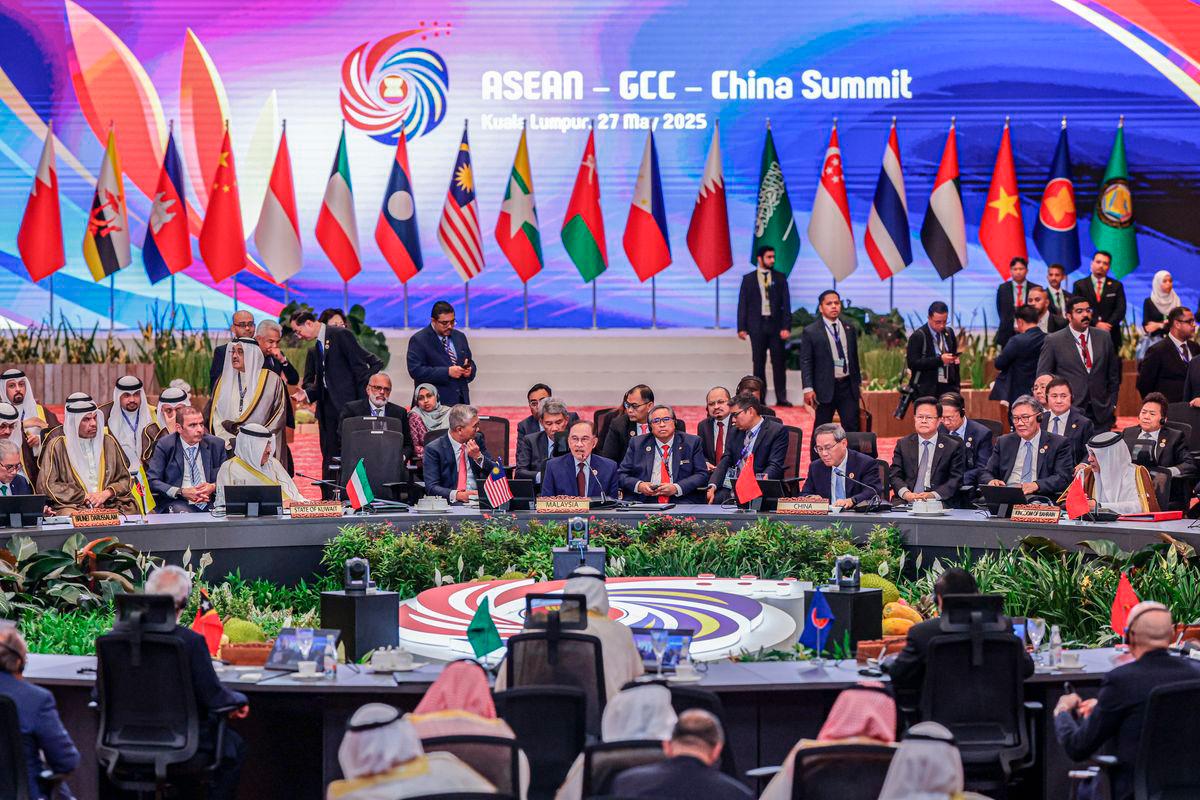KUALA LUMPUR: ASEAN leaders, in a united response to rising global economic and trade uncertainties, have directed relevant officials to monitor the risk of trade diversion and engage constructively with partners through established platforms.
According to the ASEAN Leaders’ Statement released at the conclusion of the 46th ASEAN Summit, member states reaffirmed their commitment to resolving trade issues through peaceful, consultative dialogue grounded in mutual respect and international law, consistent with the Treaty of Amity and Cooperation in Southeast Asia.
“To this end, we reaffirm ASEAN’s commitment towards regional unity, economic stability and practical cooperation in navigating external challenges,” the statement said.
Gathering in Kuala Lumpur on May 26, 2025, ASEAN leaders acknowledged the escalation of unilateral actions such as tariffs and trade restrictions, and the increasing risk of global economic fragmentation.
They stressed the bloc’s strongest resolve to safeguard regional economic stability, resilience and long-term growth, while calling out the counterproductive nature of retaliatory trade actions that could further impact ASEAN economies.
In a joint call to action, ASEAN leaders outlined a series of commitments, starting with strengthening ASEAN’s internal trade and investment.
These efforts include fast-tracking key initiatives such as the ASEAN Digital Economy Framework Agreement (DEFA) and the upgrade of the ASEAN Trade in Goods Agreement (ATIGA), aimed at boosting business certainty and competitiveness.
The bloc also committed to modernising ASEAN Plus One Free Trade Agreements (FTAs) and the Regional Comprehensive Economic Partnership (RCEP), while intensifying economic cooperation with existing and new partners. This includes region-to-region linkages such as with the Gulf Cooperation Council (GCC).
“We are determined to secure ASEAN’s position as a dynamic and forward-looking hub of global trade and investment,” the leaders said.
Internally, ASEAN pledged to enhance coordination by making full use of cross-sectoral mechanisms and the newly established ASEAN Geoeconomic Task Force. Relevant ministers were tasked with closely monitoring global economic conditions and coordinating strategic ASEAN-wide responses.
In managing immediate impacts of high tariffs, the statement noted the need for targeted domestic measures, including safeguards to support industries and vulnerable workers
ASEAN also aims to prepare for future transformative changes that drive innovation and competitiveness without leaving anyone behind.
The bloc reaffirmed its firm support for the multilateral trading system, underscoring the importance of fair, inclusive, rules-based trade with the World Trade Organisation (WTO) at its core.
“ASEAN expressed readiness to engage with WTO members to pursue reforms and maintain a system that is transparent and capable of addressing modern challenges,” according to the statement.
Meanwhile, with the ASEAN Economic Community (AEC) Blueprint 2025 nearing completion, the leaders pledged to advance the ASEAN Community Vision 2045, leveraging economic integration to reinforce resilience and confront external disruptions such as unilateral trade measures.
The statement also reaffirmed ASEAN’s Outlook on the Indo-Pacific (AOIP) as the region’s guiding framework for partnerships, emphasising ASEAN centrality, openness, and adherence to international law.
“As we approach the 60th anniversary of ASEAN in 2027, ASEAN unity and centrality remain key to regional peace, stability and prosperity,” the leaders said.
Despite global uncertainties, ASEAN remains committed to being a reliable economic partner to all, continuing efforts to deepen integration, strengthen existing ties and forge new economic partnerships based on shared values and mutual prosperity.









